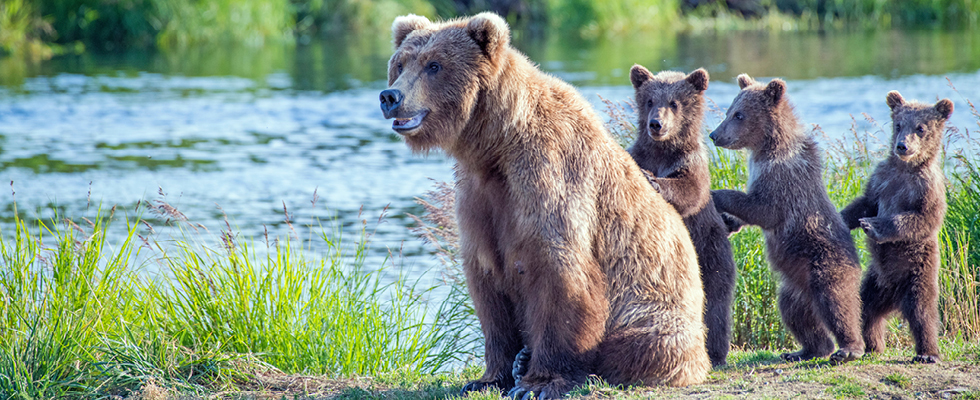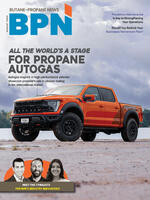
The night was the darkest and the quietest I had ever experienced. I had been invited to hunt moose in the interior of Alaska with a good friend. He had the only cabin on a small lake, which could only be reached by float plane.
When I arrived, there was another friend of his there from Pennsylvania. Our host said there were only two rules we had to comply with. One, we slept in the bunk beds — one facing the door, one facing the back of the cabin — with a loaded rifle positioned in each direction.
The second rule was to never go to the outhouse without taking your rifle. The reason? The outhouse was 50 feet away and covered on only three sides, with the open side facing the water. A wild animal could easily come between you and your gun back in the cabin — and that could prove fatal. Wildlife often came to the lake to drink.
On the third morning, a frantic sound erupted from the outhouse. Within seconds, we saw the issue: A mother grizzly and her two cubs were down at the lake — between the cabin and the outhouse. The friend from Pennsylvania had forgotten his rifle. He was panicked. In quiet voices, we told him to stay still and silent. We had our rifles ready in case she charged.
Fortunately, she didn’t. She walked along the shoreline, and our friend made it back to the cabin, shaken but safe. He knew the rule. But in just two days, complacency had set in. He felt comfortable enough to break a basic safety protocol — and it nearly cost him his life. It could have also cost the bear’s life and the lives of her cubs, as a defensive shooting would have been illegal and tragic so late in the season.
This story is not unlike what we often see in propane companies that have been operating for many years. Over time, a strong safety record can give way to overconfidence. “We haven’t had a claim in years” becomes the norm, and slowly, standards begin to slip. Complacency replaces vigilance. Safety becomes an afterthought. The result? Operational inefficiency, regulatory violations, lost business, damaged customer trust and — in some cases — the loss of insurance coverage altogether.
In today’s world, we often hear, “I’m paying more for less, so I’m having to make do.” That mentality can lead to cut corners and unchecked risks. Being compliant today requires more active management, not less. Leadership must be fully engaged in safety, training and compliance oversight — especially with a new generation of employees entering the workforce.
Tips for Propane Insurance Customers to Avoid Complacency
To remain diligent and compliant, consider these best practices:
- Conduct regular safety audits: Schedule internal and external audits at least annually. Identify gaps and take corrective action before issues become violations.
- Refresh training often: Don’t wait for the calendar to force compliance. Host quarterly safety meetings, drills and hands-on refreshers for both drivers and service technicians.
- Empower employees to speak up: Create a culture where safety concerns can be voiced without fear of backlash. Often, frontline employees spot issues first.
- Use checklists and digital tools: Reinforce daily and weekly checklists for inspections, leak testing, emergency equipment and delivery procedures. Use apps or software to ensure documentation isn’t missed.
- Rotate responsibility: Assign different team members to lead safety reviews or toolbox talks. This keeps engagement high and fosters shared accountability.
- Simulate “what if” scenarios: Encourage your team to play out “what would you do if … ” situations. These are powerful reminders of the risks at hand.
- Review incidents, even minor ones: Near misses are warning signs. Review them like actual events and update policies if needed.
- Work with a risk-savvy insurance partner: Partner with insurance providers that offer training tools, on-site consultations and safety resources. Insurance should be more than a policy — it should be a strategic partnership.
- Engage with industry associations: Stay current by being active in the National Propane Gas Association and your state propane gas association. Regulations evolve, and staying informed helps avoid unintentional noncompliance.
In the wilderness, a single forgotten rifle can mean the difference between life and death. In your business, a single lapse in attention can have equally serious consequences. The companies that thrive long term are not just compliant — they are vigilant.
For more resources on propane insurance, take a look at these other articles from BPN.



